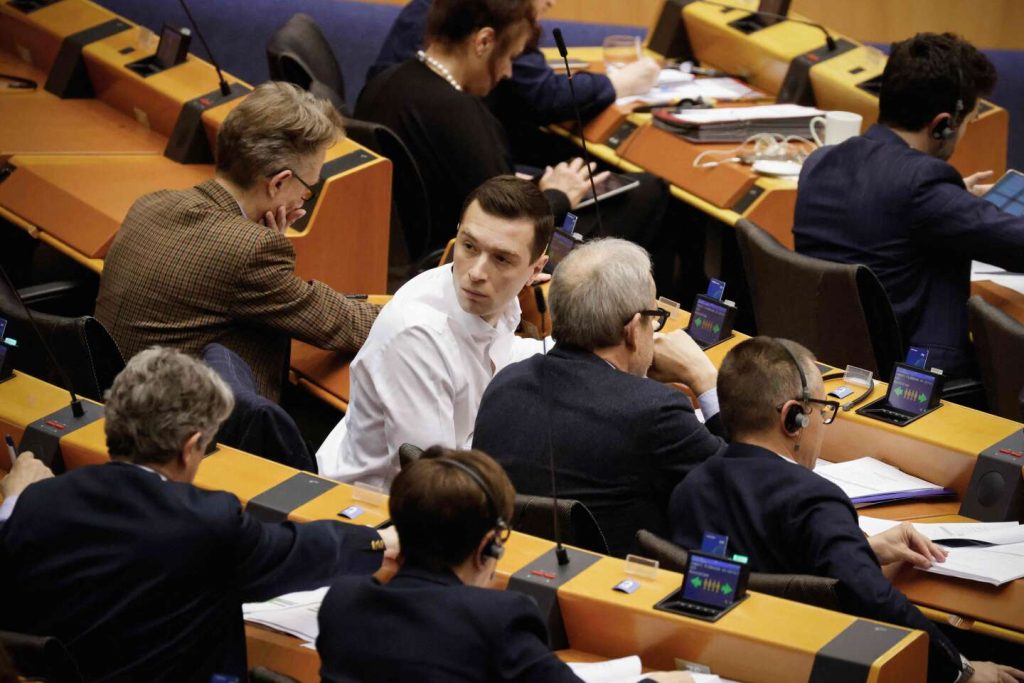Jordan Bardella, a member of the European Parliament for the French far-right party Rassemblement National (RN), has been known to describe the European Parliament as a mere “recording chamber”. However, within this assembly, Bardella and his fellow RN members use their votes to shape their vision of the world. Their positions on various international issues, such as support for authoritarian regimes, refusal to denounce the death penalty or other abuses against political opponents, and ignoring violations of fundamental freedoms, offer insight into how the far-right movement views global relations. The relative lack of media exposure compared to national assemblies allows them more freedom in their decisions.
During the last term (2019-2024), RN members only faced scrutiny for their unwavering support for the Russian regime. Despite the invasion of Ukraine by Russian President Vladimir Putin in February 2022, Bardella and his colleagues consistently voted against resolutions denouncing Russian actions, such as the law on “foreign agents”, the poisoning of opposition leader Alexei Navalny, and support for civil society organizations like Memorial. The RN’s stance on the conflict in Ukraine, where they opt to abstain on most resolutions in support of Kyiv, sets them apart from the majority of the European Parliament.
Despite the ongoing conflict in Ukraine, the RN delegation within the Identity and Democracy (ID) group continues to refrain from criticizing Vladimir Putin’s regime. They choose to abstain on resolutions condemning Russian actions or expressing support for Ukraine, citing a principle of non-interference in the affairs of other states. This stance, along with their previous support for Kremlin policies, has led to criticism from other political groups in the European Parliament. Bardella maintains that it is not the EU’s place to judge the actions of individual states in matters of diplomacy, defense, and foreign relations.
The RN’s support for Putin and his regime remains steadfast, even in the face of international criticism and human rights abuses committed by the Russian government. Despite some abstentions on specific issues, such as the treatment of Alexei Navalny or conditions in Russian detention facilities, the RN maintains a stance of neutrality and non-interference in these matters. This approach has led to accusations of complicity with authoritarian regimes and a lack of commitment to defending human rights and democracy in the European Parliament.
The RN’s position within the European Parliament reflects their broader eurosceptic and nationalist ideology, which places an emphasis on national sovereignty and non-interference in the affairs of other states. While Bardella and his colleagues may present themselves as defenders of national interests and critics of EU technocracy, their actions and voting record reveal a complex relationship with international politics and human rights issues. Despite criticism and opposition from other political groups within the European Parliament, the RN continues to advocate for their vision of a Europe that respects the sovereignty of nation-states and prioritizes national interests over international cooperation.


